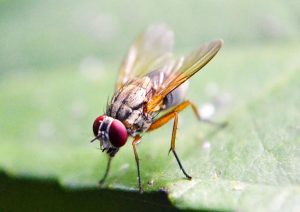 Hindsight may be 20/20, but when it comes to pests this year, Rentokil is looking into its crystal ball to help homeowners proactively defend their homes against pest infestation.
Hindsight may be 20/20, but when it comes to pests this year, Rentokil is looking into its crystal ball to help homeowners proactively defend their homes against pest infestation.
The experts at Rentokil used their field experiences and examined trends and company data to determine the following six pest predictions. Along with the predictions, we are offering some quick tips for homeowners to help keep their homes pest-free in the new year.
Populations of disease-spreading mosquitoes, such as the yellow fever mosquito and the Asian tiger mosquito, have surged in recent years in some Western states. These mosquitoes, along with the already well-established common house mosquito, can spread diseases such as West Nile virus, Eastern Equine Encephalitis (EEE), and Zika virus, as well as the parasite that causes heartworm in pets.
Homeowner Tips: To protect yourself and your family, dispose of standing water from your property. It only takes a tablespoon of water for mosquitoes to breed. When spending time outdoors, protect yourself and your family by always wearing an EPA-approved insect repellent.
In recent years, in major metropolitan areas across the country, rat populations have surged. Expect to see that trend continue and watch for rat activity to increase in suburban areas, as well. Warmer winters, a booming construction pipeline, lack of sanitation control, and an affordable housing crisis are all issues that have contributed to the swell of recent rat activity.
Homeowner Tips: To deter rats, take the following steps: Eliminate excess vegetation, especially dense low-vegetation that serves as hiding places for rats. Keep trees cut back from the roofline. Seal any exterior openings larger than a nickel with rodent-proof material such as hardware cloth or flashing. Finally, ensure that all trash is sealed in bags and placed into garbage cans with well-fitting lids to prevent an infestation.
Termites are the most destructive pests in North America, causing $6 billion in property damage each year. These wood-destroying pests are a continual problem for homeowners in the Western U.S., and this year could bring heavier pressure than usual. Rentokil experts have seen an increase in activity from subterranean and dampwood termites in many areas this year.
Homeowner Tips: To deter termites, eliminate soil to wood contact and avoid moisture accumulation near your home or structures’ foundation. Remove excess wood (stumps, lumber, etc.) from your yard. Unfortunately, termites can be present for years before homeowners ever seen signs of their activity, causing extensive and costly damage. To avoid this, have a termite protection plan in place. Speak to your pest control provider about risk and protection options for your home.
Cockroach populations have boomed over the past several years, due in large part to wetter springs and winters. Cockroaches carry diseases, infest stored food, and spread these diseases through their excrement. Cockroach removal is vital as infestations can be serious if not taken care of in a timely manner.
Homeowner Tips: The biggest attractant for cockroaches is food. Keep a clean kitchen, mopping or sweeping up any spills. Cockroach-proof your home by sealing small cracks and crevices around windows and door frames with a silicone-based caulk. Ensure that door seals, including the one on your garage, are in place and intact. If you’re experiencing cockroach problems, speak with your pest control professional to determine the best solution for your home.
Flies
If you have noticed more flies in your area, you aren’t alone. Filth flies – house flies, bottle flies, flesh flies – are more abundant than we’ve seen in previous years. You can thank increasing population density, waste management practices that haven’t kept pace with growth, and a general trend toward a warming climate for the fly pressure.
Homeowner Tips: Fly activity can be difficult to control, but there are preventative steps homeowners can take to keep them at bay. Screen all windows and doors. Keep trash stored away from your home and ensure that all trash cans have tight-fitting lids. If flies are bothering you when sitting outside, use a box or oscillating fan to keep them away. When air is moving, flies have a hard time landing.
Last year, spiders arrived early and more people reported seeing spiders in their homes. Spiders eat other insects, therefore, heavy rain and record-breaking temperatures over the last few years have created the perfect conditions for the smaller insects that spiders love to eat. With a steady food source, spider populations are increasing. Although beneficial for our ecosystem, most people prefer spiders to stay outside where they belong.
Homeowner Tips: Fortunately, most species of spiders can not survive indoors as their systems are built for outdoor weather. If the thought of spiders lurking around freaks you out, try changing your white outdoor light bulbs to yellow light bulbs, which attract fewer insects that can serve as food for the spiders. There are a few species of spiders that can live indoors and need to be controlled by spider removal experts.
The experts at Rentokil agree that a proactive approach is the first step any homeowner can take to prevent pest issues. With these 2020 pest predictions in mind, take time to evaluate your current pest control plan and ensure that you have the protection you need to protect yourself and your family from pests this year.

 Hindsight may be 20/20, but when it comes to pests this year, Rentokil is looking into its crystal ball to help homeowners proactively defend their homes against pest infestation.
Hindsight may be 20/20, but when it comes to pests this year, Rentokil is looking into its crystal ball to help homeowners proactively defend their homes against pest infestation.